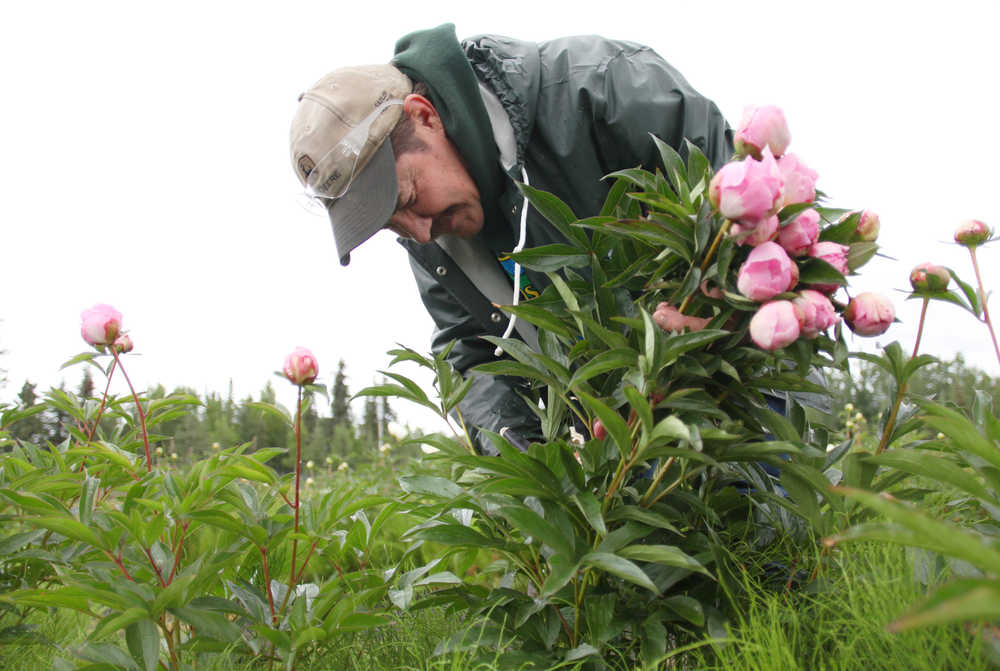Kenai Peninsula agriculture will have a new, expert pair of hands next month to help cultivate the developing industry.
Casey Matney, presently the Regional Extension Specialist of Range Management at the Colorado State University Extension Service, is filling the Agriculture and Horticulture Agent position with the Kenai Peninsula’s University of Alaska Fairbanks Cooperative Extension Service office that has been vacant for more than one year.
“People on the South Peninsula as well as up here (the Central Peninsula) and a number of agency partners, as well as home growers including high tunnels growers and home gardeners and a number of hay producers, are looking forward to him (Casey) showing up,” said Alaska Pest Management Program Aide Janice Chumley. “Everyone I have talked to is excited.”
The vetting process was extensive, Chumley said. The search was posted nationwide, she said.
Whomever holds the position must not only be able to respond to a broad range of agricultural activity, but fit in with the atmosphere at the local office, Chumley said.
Matney has a lot of ground to cover. The position addresses management practices applied to the small-scale operations that characterize agriculture on the Kenai Peninsula.
Chumley said the Oregon born-and-bred Matney will also work with agency partners such as the Natural Resources Conservation Service, Kenai Peninsula Food Bank, Borough Assembly and the Alaska Farm Bureau to improve livestock and plant production locally.
Matney’s first impressions recognize the diversity of enterprises on the peninsula and the variety of climates and topographies in which they are established.
Matney describes his background as one rooted in “soils and plants,” a simplification of his four degrees that include a Bachelors of Arts in Fisheries and Wildlife with a specialty in Habitat Management, a Masters of Science in Rangeland Resources and most recently a Doctorate in Rangeland Ecology and Management.
Chumley and Associate Director for the Agricultural and Forestry Experiment Station at the University of Fairbanks Milan Shipka said Matney will bring necessary skills in pest management, livestock production and personal gardening as well as new skills in herd health, animal nutrition and the ability to interface with the extension’s veterinarian to the position.
Shipka held the position of Agriculture and Horticulture Department Chair for the Cooperative Extension Service for 6 years including, the time when Matney was hired, and oversaw previous position holders.
“Casey brings some new skills haven’t had available on the Peninsula before,” Shipka said.
The purpose of the position is to help improve food security on a local scale, which translates statewide, Shipka said.
“Our state isn’t going to be food secure, but can work to establish more food security,” Shipka said. ”Alaska is probably not going to have large-scale operations according to USDA (United States Division of Agriculture) standards. That is just what comes with being at 60 degrees northern latitude… Someone may prove me wrong.”
Matney said he is taking the position with the understanding that there are “no simple answers.”
When already-fruitful industries begin to meet challenges such as the major die-off some of the lucrative peony operations are experiencing on the Kenai Peninsula, finding solutions can be require a complex investigation, he said.
Entire fields were wiped out this winter, possibly due to lack of snow cover, which protects the maturing root systems from stressful freeze-thaw cycles, Matney said. He said the key may be to introduce more hearty varieties or improve field health, he said.
Matney will also to assist in integrating new enterprises with the potential for high yields, such as barley, which the state has shown some interest in because of its already-proven ability to grow in Alaska.
“I will also look at ways to improve growing crops in the shorter season and how to make that more sustainable,” Matney said.
In the off season, Matney plans to do research and use the time to apply for grants that may help better understand how the winter and temperature fluctuations effect plant growth and survival. He may also be looking at how people will rehabilitate once-arable land after a forest fire has damaged their property.
“I am not going to say what the area needs,” Matney said. “I am going to let people tell me and make my own observations as well.”
Reach Kelly Sullivan at kelly.sullivan@peninsulaclarion.com

